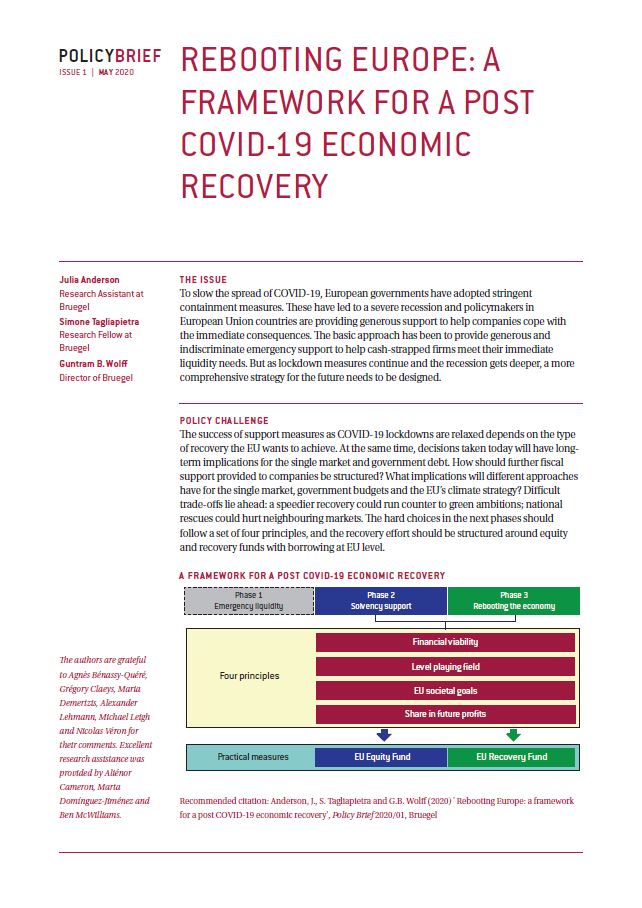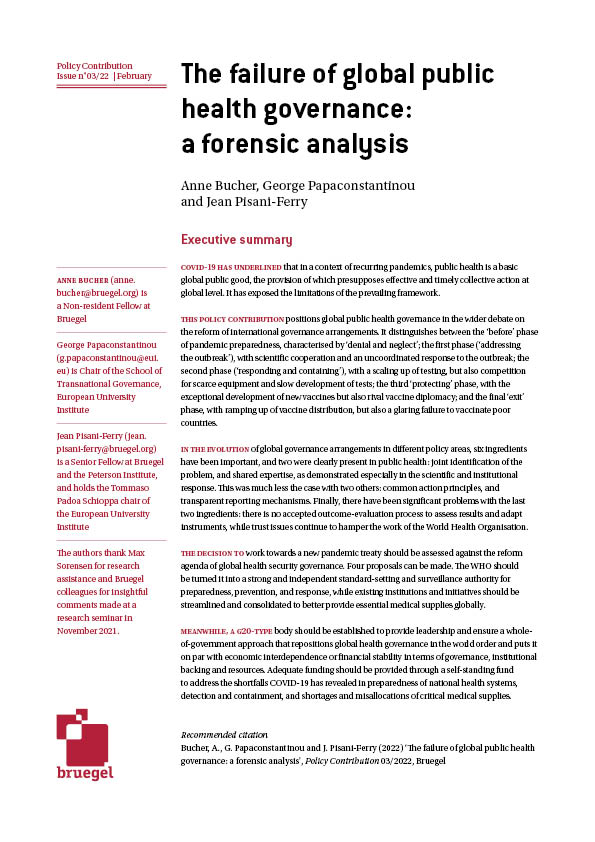Policy Brief
Rebooting Europe: a framework for a post COVID-19 economic recovery
COVID-19 has triggered a severe recession and policymakers in European Union countries are providing generous, largely indiscriminate, support to companies. As the recession gets deeper, a more comprehensive strategy is needed. This should be based on four principles: viability of supported entities, fairness, achieving societal goals, and giving society a share in future profits. The effort should be structured around equity and recovery funds with borrowing at EU level.
The issue
To slow the spread of COVID-19, European governments have adopted stringent containment measures. These have led to a severe recession and policymakers in European Union countries are providing generous support to help companies cope with the immediate consequences. The basic approach has been to provide generous and indiscriminate emergency support to help cash-strapped firms meet their immediate liquidity needs. But as lockdown measures continue and the recession gets deeper, a more comprehensive strategy for the future needs to be designed.
Policy challenge
The success of support measures as COVID-19 lockdowns are relaxed depends on the type of recovery the EU wants to achieve. At the same time, decisions taken today will have long-term implications for the single market and government debt. How should further fiscal support provided to companies be structured? What implications will different approaches have for the single market, government budgets and the EU’s climate strategy? Difficult trade-offs lie ahead: a speedier recovery could run counter to green ambitions; national rescues could hurt neighbouring markets. The hard choices in the next phases should follow a set of four principles, and the recovery effort should be structured around equity and recovery funds with borrowing at EU level.












